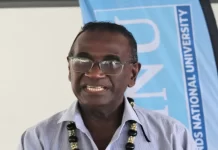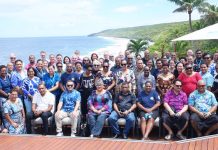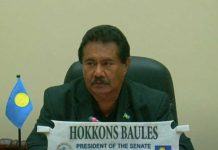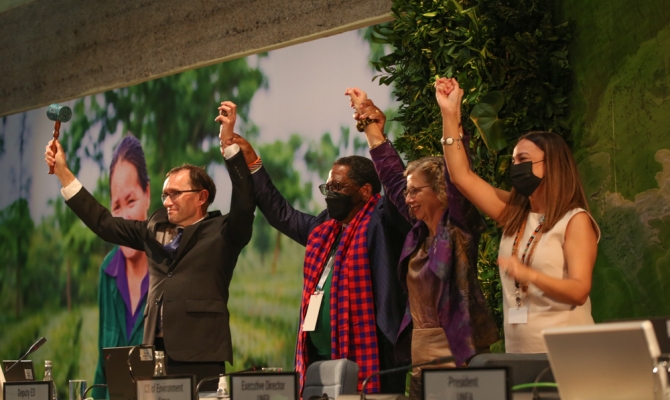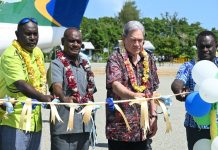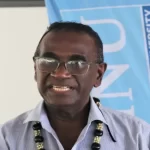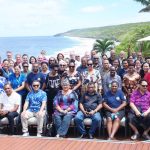It was a historic milestone announced with jubilance in 2022 at the end of the United Nations Assembly 5.2 in March 2022 with more than 170 governments uniting to End Plastic Pollution through an international legally binding agreement.
Fast forward to 2024, the fifth and final Intergovernmental Negotiations Committee in Busan Korea where the Plastics Treaty Text was to be completed and prepared for the next stage. After a week of late nights and early mornings, negotiators need a strong dose of optimism that we are in fact, on track for a ‘cure’.
Unless we act now, the amount of plastic that enters the environment each year will double by 2040 compared to that of 2022. Microplastic has been found in human organs raising concern about the potential health risks including reproductive issues and cancer.
“Acting now” has been to develop an internationally legally binding agreement to end plastic pollution for which text must be ready by Sunday, 1 December. Having only received the Chairs non-paper on Friday afternoon – negotiators have approximately 48 hours to pull things together – converging all different positions in closed rooms to reach a compromise that will make a difference.
Now is the time for that optimism that a ‘cure’ will be found.
“Everyone is putting in the effort now. We’re working here with a long-term goal in mind, one that will make a better future for all of humanity,” said Sandrina Thondoo of the Cook Islands delegation.
“This, here, right now – its so much more than hype, we’ve been putting in the hours and doing the hard work to make the most of this opportunity we have been given. It’s in our power to make a positive change for future generations. We need actual results.”
The Pacific Small Islands Developing States have proposed a global target of reducing plastic production by 40 per cent by 2040 compared to 2025 levels. They call upon parties to take measures across the lifecycle of plastics to achieve the target.
It is this ambitious approach that needs to be seen, and felt more, within the INC negotiation rooms and corridors.
When the UNEA 5.2 resolution calling for this work to happen was passed in 2022 the President of the Assembly and Norway’s Minister for Climate and the Environment, Espen Barth Eide highlighted how against the backdrop of geopolitical turmoil, it was “multilateral cooperation at its best.”
Five sessions of the International Negotiating Committee later, it is this multilateral cooperation committed to making a positive impact in a Plastics Treaty that is needed.
“I suspect we’re moving in a direction of not completing our work here in Busan. I think we’ll have to go to another session. The real tricky part of it is, can we use the text that we’ve completed at least here in Busan as a basis for going forward? And there’ll be certainly some parties will say, ‘no, we start all over again’ and that’s the tactic of some countries,” said Dr Ian Fry of the Tuvalu Delegation.
“So, we need a mandate from the Chair to say, ‘okay you have got this far, let’s use this as a basis.’ But whether he or the members will give us this mandate or not is not clear. This can help us hone in on the crunch issues that we have to resolve.”
Given the Pacific Islands live in the largest ocean and are custodians of the world’s large tuna stock vital for global food security and have a small land mass thus coining themselves as Large Ocean Island States the transboundary issue of plastic waste is huge. Pacific Islands need support to address legacy waste, current waste management and also plastic pollution that enters their countries.
Contributing to less than 1.3% of the world’s total plastic waste problem, the Pacific Small Islands Developing States are also calling for the Treaty to span the full life cycle, that includes the preparatory stage of plastic production.
Demonstrating global leadership in Korea, the Pacific SIDS continue to call for aspects of the plastic treaty to be as ambitious as possible. Across the remaining days, work will continue to bring more members on board.
“We all still want to do something, that sentiment is still there. We need to work together, all of us across the world. We all need to find common ground even those of us that are opposing,” said Ms Marjorie Wells of Vanuatu.
“We need to find the landing ground and bring back that optimism to save our world. The time is now in the 48 hours that we must make it happen. Hopefully we will., said Wells.


